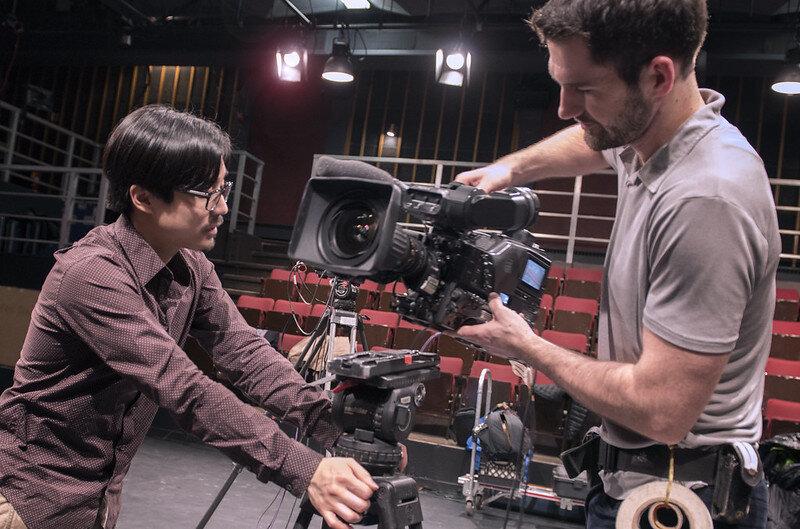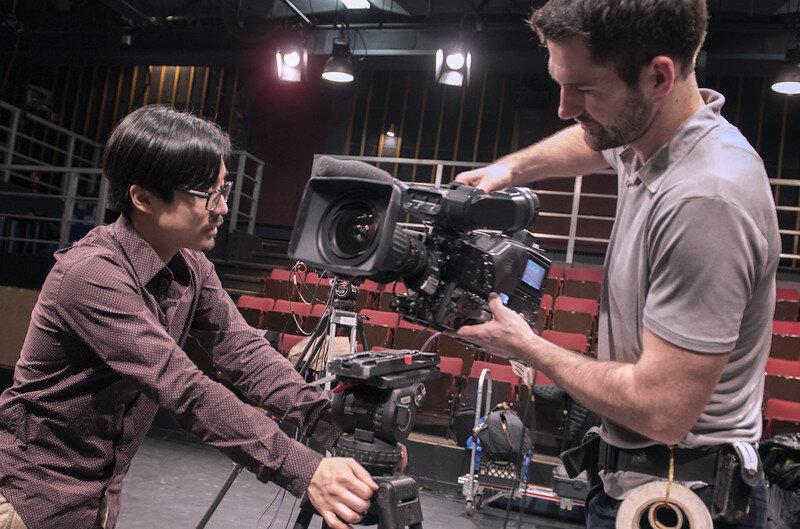In order to be more inclusive, the television network American Broadcasting Company, better known as ABC, is choosing to decline scripts for new programs because they are not diverse enough. This past week Dana Walden, the chairman of entertainment for Walt Disney Television, the parent company of ABC, stated, “For the first time we received some incredibly well-written scripts that did not satisfy our standards in terms of inclusion.” These scripts were rejected because they either did not include a diverse cast or it was not written by people from underrepresented groups.
COURTESY // Penn State
Last year, ABC released a list of new inclusion standards for future programs. The decision to have new standards came following the Black Lives Matter movement and the death of George Floyd. These new standards are for on and off-camera representation. There are four sections with five to six guidelines in each section. At least three of the guidelines in each section need to be followed for a show to get an opportunity to be greenlit by the network.
The first section pertains to on-screen representation. ABC is requesting that at least 50% of regular and recurring characters or actors must come from underrepresented groups. There should also be meaningful integration of underrepresented groups in the overall themes and narratives of the show’s premise. Section two circles around creative leadership. 50% of the producers, and writing staff or executive story editors must also come from diverse backgrounds. The first two sections guarantee that at least half of everyone acting or developing any given show has to be an underrepresented individual.
Section three is titled “below-the-line” and the guidelines state that half of the entire crew or key roles involved with the project should be underrepresented. The promotion of career progression for one underrepresented crew/team member should now be guaranteed. The last section focuses on industry access and career development.
ABC states that paid employment opportunities like internships should facilitate eligibility for underrepresented individuals. There should be training and skill development opportunities for those in internships as well. These last two sections assure that half of the entire behind-the-scenes employees have to come from diverse backgrounds and that there will be a significant amount of employment opportunities for those who come from underrepresented communities.
In addition to the standards list, ABC Executive Vice President of Development and Content Strategy, Simran Sethi, included a database of diverse and underrepresented employees. The database was included so future showrunners can find cast or crew members that fit the inclusion criteria easily. Sethi also attached a list of vendors that are owned by members of underrepresented groups to show support even outside the acting realm. This gives those who want to have their show on ABC a quick list of people that the network expressly suggests they should hire or work with moving forward.
These decisions are causing those who are working in the industry as well as viewers of ABC to question the new guidelines. The backlash from those who are taking a deeper look into these new guidelines aren’t necessarily complaints about the reasoning behind creating the standards in the first place. Most of the people protesting the guidelines are in favor of making television programming more diverse and showcasing people from underrepresented communities.
The issue has centered around choosing diversity over quality for the sake of being able to say that their company is inclusive. By stating that scripts were rejected because they weren’t diverse enough, it makes the public believe the network is choosing shows that aren’t simply high-quality. Instead, they are greenlighting shows because they included a significant amount of representation for underrepresented groups, not because they are objectively good shows.
According to Fox News, Walden admitted that ABC had passed on a high-quality script simply because the show centered around a white family that would have included a diverse cast of neighbors and friends. “Pass. That’s not going to get on the air anymore because that’s not what our audience wants,” Walden said during the panel discussion.
The problem with this statement is if ABC is choosing to greenlight low-quality diverse shows, the audience may not be interested in the show due to the lack of quality. Low-quality programs will ultimately have low ratings and spur the network to make decisions to repair the reputation of the company. These decisions could include cancellations, or making public statements to defend the programs. Consequently, this could possibly leave the door open for representatives of ABC to state that disapproving audience members are racist, homophobic or ableist for not supporting a show that is heavily diverse when that isn’t the case.
The comments that Walden made at this panel could cause more problems than positivity for those in the industry who do come from underrepresented groups. By stating that ABC has rejected well-written scripts that center around or were written by white people implies that the shows they did accept were not as well-written but they were greenlit just because they were diverse enough for their standards. This could leave all of the underrepresented show writers, producers or actors wondering if the only reason they were hired was because their qualities fit the new guidelines of being diverse.
ABC should just look outside their entertainment bubble and find writers, actors and crew members that are going to do the best job, regardless of their race, gender or sexual orientation. Most of the entertainment industry chooses to stay within their circles of crew members and actors, which happen to be filled with those who are not from underrepresented groups due to the history of film and television. By expanding their talent search outside of Hollywood they will be able to make their programming organically diverse instead of forcibly diverse, but the focus should be on creating high-quality content that also happens to be diverse, instead of greenlighting any show simply because it was made to be diverse.





![[Both photos courtesy of sonoma.edu]
Ming-Ting Mike Lee stepped in as the new SSU president following Sakakis resignation in July 2022](https://sonomastatestar.com/wp-content/uploads/2024/04/CC4520AB-22A7-41B2-9F6F-2A2D5F76A28C-1200x1200.jpeg)



























